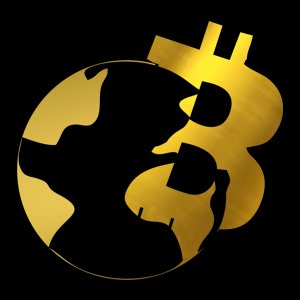Bitget:全球日交易量排名前 4!
BTC 市占率63.22%
Bitget 新幣上架 : Pi
BTC/USDT$108829.05 (+0.21%)恐懼與貪婪指數66(貪婪)
山寨季指數:0(比特幣季)
盤前交易幣種SOONNEW比特幣現貨 ETF 總淨流量:+$211.7M(1 天);+$3.13B(7 天)。Bitget 新用戶立享 6,200 USDT 歡迎禮包!立即領取
到 Bitget App 隨時隨地輕鬆交易!立即下載
Bitget:全球日交易量排名前 4!
BTC 市占率63.22%
Bitget 新幣上架 : Pi
BTC/USDT$108829.05 (+0.21%)恐懼與貪婪指數66(貪婪)
山寨季指數:0(比特幣季)
盤前交易幣種SOONNEW比特幣現貨 ETF 總淨流量:+$211.7M(1 天);+$3.13B(7 天)。Bitget 新用戶立享 6,200 USDT 歡迎禮包!立即領取
到 Bitget App 隨時隨地輕鬆交易!立即下載
Bitget:全球日交易量排名前 4!
BTC 市占率63.22%
Bitget 新幣上架 : Pi
BTC/USDT$108829.05 (+0.21%)恐懼與貪婪指數66(貪婪)
山寨季指數:0(比特幣季)
盤前交易幣種SOONNEW比特幣現貨 ETF 總淨流量:+$211.7M(1 天);+$3.13B(7 天)。Bitget 新用戶立享 6,200 USDT 歡迎禮包!立即領取
到 Bitget App 隨時隨地輕鬆交易!立即下載



REAL/TWD 匯率換算器
REAL
TWD
1 REAL = 0.1053 TWD,目前 1 Realy(REAL)兌換 TWD 的價格為 0.1053。匯率即時更新,僅供參考。
在所有主流交易平台中,Bitget 提供最低的交易手續費。VIP 等級越高,費率越優惠。
Realy價格走勢圖 (REAL/TWD)
最近更新時間 2025-05-24 16:26:12(UTC+0)
市值:--
完全稀釋市值:--
24 小時交易額:NT$171,081.24
24 小時交易額/市值:0.00%
24 小時最高價:NT$0.1061
24 小時最低價:NT$0.1050
歷史最高價:NT$846.04
歷史最低價:NT$0.09637
流通量:-- REAL
總發行量:
100,000,000REAL
流通率:0.00%
最大發行量:
--REAL
以 BTC 計價:0.{7}3226 BTC
以 ETH 計價:0.{5}1378 ETH
以 BTC 市值計價:
--
以 ETH 市值計價:
--
合約:
AD27ov...9CqSVGb(Solana)
更多
您認為今天 Realy 價格會上漲還是下跌?
總票數:
上漲
0
下跌
0
投票數據每 24 小時更新一次。它反映了社群對 Realy 的價格趨勢預測,不應被視為投資建議。
Realy (REAL) 簡介
Realy代幣的全面解說
Realy是一種納入區塊鏈技術的實體藝術品代幣,這種代幣將區塊鏈與藝術界相結合,為收藏家提供了全新的收藏與交易方式。以下是對Realy代幣的全面解說。
Realy的功能
Realy代幣具有多種功能。首先,它能夠數位化實體藝術品,使藝術品可以在線上交易。收藏家可以使用Realy代幣來新增、交易、或出售他們的藝術品,讓藝術品的交易更加便捷。此外,由於區塊鏈技術的特性,每一筆交易都會被記錄,保證了交易的透明性與可追溯性。
Realy代幣的流通
Realy代幣可以在許多加密貨幣交易平台上進行交易。收藏家可以購買和出售Realy代幣,將其用於在線上交易藝術品。此外,Realy也會定期舉行代幣挖礦活動,讓用戶有機會獲得代幣。
Realy代幣的未來展望
隨著區塊鏈技術的進步,Realy代幣的應用場景將會越來越多。不僅可以在藝術品交易中使用,也可以用於其他種類的收藏品交易,如稀有書籍、古董、紀念品等。此外,Realy也會與更多的藝術品交易平台合作,為收藏家提供更多交易選擇。
結語,Realy代幣是結合了區塊鏈技術與藝術品收藏的創新產品。它打破了傳統的藝術品交易方式,讓藝術品的交易更加便捷和透明。未來,Realy代幣將有更多的應用場景,值得收藏家們持續關注。
Realy 的 AI 分析報告
今日加密市場熱點查看報告
今日Realy即時價格TWD
今日Realy即時價格為 NT$0.1053 TWD,目前市值為 NT$0.00。過去 24 小時內,Realy價格跌幅為 0.24%,24 小時交易量為 NT$171,081.24。REAL/TWD(Realy兌換TWD)兌換率即時更新。
1Realy的價值是多少?
截至目前,Realy(REAL)的 價格為 NT$0.1053 TWD。您現在可以用 1 REAL 兌換 NT$0.1053,或用 NT$ 10 兌換 94.99714445228066 REAL。在過去 24 小時內,REAL 兌換 TWD 的最高價格為 NT$0.1061 TWD,REAL 兌換 TWD 的最低價格為 NT$0.1050 TWD。
Realy價格歷史(TWD)
過去一年,Realy價格上漲了 -94.41%。在此期間,REAL兌TWD 的最高價格為 NT$3.42,REAL兌TWD 的最低價格為 NT$0.09637。
時間漲跌幅(%) 最低價
最低價 最高價
最高價 
 最低價
最低價 最高價
最高價 
24h-0.24%NT$0.1050NT$0.1061
7d+3.87%NT$0.09720NT$0.1064
30d-30.56%NT$0.09637NT$0.1484
90d-86.33%NT$0.09637NT$0.7777
1y-94.41%NT$0.09637NT$3.42
全部時間-99.96%NT$0.09637(2025-05-08, 17 天前 )NT$846.04(2021-12-16, 3 年前 )
Realy的最高價格是多少?
Realy兌換TWD的歷史最高價(ATH)為 NT$846.04,發生於 2021-12-16。相較於價格回撤了 99.99%。
Realy的最低價格是多少?
Realy兌換TWD的歷史最低價(ATL)為 NT$0.09637,發生於 2025-05-08。相較於Realy歷史最低價,目前Realy價格上漲了 9.23%。
Realy價格預測
什麼時候是購買 REAL 的好時機? 我現在應該買入還是賣出 REAL?
在決定買入還是賣出 REAL 時,您必須先考慮自己的交易策略。長期交易者和短期交易者的交易活動也會有所不同。Bitget REAL 技術分析 可以提供您交易參考。
根據 REAL 4 小時技術分析,交易訊號為 買入。
根據 REAL 1 日技術分析,交易訊號為 中立。
根據 REAL 1 週技術分析,交易訊號為 賣出。
REAL 在 2026 的價格是多少?
根據REAL的歷史價格表現預測模型,預計REAL的價格將在 2026 達到 NT$0.2306。
REAL 在 2031 的價格是多少?
2031,REAL的價格預計將上漲 +3.00%。 到 2031 底,預計REAL的價格將達到 NT$0.3192,累計投資報酬率為 +200.87%。
熱門活動
常見問題
Realy 的目前價格是多少?
Realy 的即時價格為 NT$0.11(REAL/TWD),目前市值為 NT$0 TWD。由於加密貨幣市場全天候不間斷交易,Realy 的價格經常波動。您可以在 Bitget 上查看 Realy 的市場價格及其歷史數據。
Realy 的 24 小時交易量是多少?
在最近 24 小時內,Realy 的交易量為 NT$171,081.24。
Realy 的歷史最高價是多少?
Realy 的歷史最高價是 NT$846.04。這個歷史最高價是 Realy 自推出以來的最高價。
我可以在 Bitget 上購買 Realy 嗎?
可以,Realy 目前在 Bitget 的中心化交易平台上可用。如需更詳細的說明,請查看我們很有幫助的 如何購買 realy 指南。
我可以透過投資 Realy 獲得穩定的收入嗎?
當然,Bitget 推出了一個 機器人交易平台,其提供智能交易機器人,可以自動執行您的交易,幫您賺取收益。
我在哪裡能以最低的費用購買 Realy?
Bitget提供行業領先的交易費用和市場深度,以確保交易者能够從投資中獲利。 您可通過 Bitget 交易所交易。
Realy 資訊
Realy持幣分布集中度
巨鯨
投資者
散戶
Realy地址持有時長分布
長期持幣者
游資
交易者
coinInfo.name(12)即時價格表

全球Realy價格
目前Realy用其他貨幣計價是多少?最近更新時間:2025-05-24 16:26:12(UTC+0)
REAL 兌換 MXN
Mexican Peso
Mex$0.07REAL 兌換 GTQGuatemalan Quetzal
Q0.03REAL 兌換 CLPChilean Peso
CLP$3.3REAL 兌換 HNLHonduran Lempira
L0.09REAL 兌換 UGXUgandan Shilling
Sh12.82REAL 兌換 ZARSouth African Rand
R0.06REAL 兌換 TNDTunisian Dinar
د.ت0.01REAL 兌換 IQDIraqi Dinar
ع.د4.6REAL 兌換 TWDNew Taiwan Dollar
NT$0.11REAL 兌換 RSDSerbian Dinar
дин.0.36REAL 兌換 DOPDominican Peso
RD$0.21REAL 兌換 MYRMalaysian Ringgit
RM0.01REAL 兌換 GELGeorgian Lari
₾0.01REAL 兌換 UYUUruguayan Peso
$0.15REAL 兌換 MADMoroccan Dirham
د.م.0.03REAL 兌換 OMROmani Rial
ر.ع.0REAL 兌換 AZNAzerbaijani Manat
₼0.01REAL 兌換 SEKSwedish Krona
kr0.03REAL 兌換 KESKenyan Shilling
Sh0.45REAL 兌換 UAHUkrainian Hryvnia
₴0.15- 1
- 2
- 3
- 4
- 5
相關加密貨幣價格
Litecoin 價格(TWD)Bitcoin 價格(TWD)Fartcoin 價格(TWD)Pi 價格(TWD)Toncoin 價格(TWD)Bonk 價格(TWD)Cardano 價格(TWD)Pepe 價格(TWD)Dogecoin 價格(TWD)Shiba Inu 價格(TWD)Terra 價格(TWD)Smooth Love Potion 價格(TWD)Kaspa 價格(TWD)dogwifhat 價格(TWD)Worldcoin 價格(TWD)Ethereum 價格(TWD)OFFICIAL TRUMP 價格(TWD)XRP 價格(TWD)Stellar 價格(TWD)Solana 價格(TWD)
Bitget 平台新上架幣種的價格
新幣榜
如何購買Realy(REAL)

建立您的免費 Bitget 帳戶
使用您的電子郵件地址/手機號碼在 Bitget 註冊,並建立強大的密碼以確保您的帳戶安全

認證您的帳戶
輸入您的個人資訊並上傳有效的身份照片進行身份認證

將 REAL 兌換為 TWD
在 Bitget 上選擇加密貨幣進行交易。
了解更多購買其他幣種
您可以在哪裡購買Realy(REAL)?
影片部分 - 快速認證、快速交易

如何在 Bitget 完成身分認證以防範詐騙
1. 登入您的 Bitget 帳戶。
2. 如果您是 Bitget 的新用戶,請觀看我們的教學,以了解如何建立帳戶。
3. 將滑鼠移到您的個人頭像上,點擊「未認證」,然後點擊「認證」。
4. 選擇您簽發的國家或地區和證件類型,然後根據指示進行操作。
5. 根據您的偏好,選擇「手機認證」或「電腦認證」。
6. 填寫您的詳細資訊,提交身分證影本,並拍攝一張自拍照。
7. 提交申請後,身分認證就完成了!
加密貨幣投資(包括透過 Bitget 線上購買 Realy)具有市場風險。Bitget 為您提供購買 Realy 的簡便方式,並且盡最大努力讓用戶充分了解我們在交易所提供的每種加密貨幣。但是,我們不對您購買 Realy 可能產生的結果負責。此頁面和其包含的任何資訊均不代表對任何特定加密貨幣的背書認可,任何價格數據均採集自公開互聯網,不被視為來自Bitget的買賣要約。
REAL/TWD 匯率換算器
REAL
TWD
1 REAL = 0.1053 TWD,目前 1 Realy(REAL)兌換 TWD 的價格為 0.1053。匯率即時更新,僅供參考。
在所有主流交易平台中,Bitget 提供最低的交易手續費。VIP 等級越高,費率越優惠。
Realy評級
社群的平均評分
4.6
此內容僅供參考。
Bitget 觀點

Bitcoin_World
9小時前
Kalshi Revolutionizes Access: Seamless Crypto Deposits Now Live
Are you involved in the world of cryptocurrency and looking for new ways to engage with your digital assets? Get ready for some exciting news! A significant development is unfolding in the prediction market space that directly impacts how you might use your crypto.
Before we dive into the big announcement, let’s quickly touch upon what Kalshi is. Imagine a platform where you can trade on the outcome of future events. Not stock prices or commodities, but real-world occurrences like ‘Will the US GDP grow by X% this quarter?’ or ‘Will a specific weather event happen?’. That’s the essence of Kalshi – it’s a regulated prediction market platform based in the United States.
Prediction markets are fascinating because they allow people to bet (or trade) on the probability of events. The price of a contract on Kalshi reflects the market’s collective belief about the likelihood of that event occurring. They are often seen as a unique way to gauge public sentiment or even hedge against certain risks.
Why does Kalshi matter? As a regulated entity, it brings a level of legitimacy and accessibility to prediction markets that wasn’t widely available before, especially in the US. It operates within a defined legal framework, making it distinct from some more decentralized or less regulated alternatives.
The core news, initially reported by Walter Bloomberg on X, is that Kalshi has officially introduced support for crypto deposits. This means users now have an alternative method to fund their accounts beyond traditional methods like bank transfers or credit cards.
This isn’t just a minor update; it’s a significant bridge being built between the traditional financial world, where platforms like Kalshi operate, and the rapidly growing digital asset ecosystem. For years, accessing platforms like this often required navigating conventional banking rails, which can sometimes be slow or restrictive for those whose wealth is primarily in digital assets.
By integrating crypto deposit functionality, Kalshi is opening its doors wider to the cryptocurrency community, acknowledging the increasing prevalence and utility of digital currencies as a form of value and payment.
Adding the ability to deposit crypto brings several tangible benefits to users interested in participating in the Kalshi prediction market:
While specific steps can vary slightly depending on Kalshi’s implementation, the general process to deposit crypto on a platform like this typically involves the following:
Users should always double-check the deposit address and network before sending funds, as sending crypto to the wrong address or network can result in permanent loss of funds.
The integration of crypto deposits by a regulated platform like Kalshi is a significant indicator of the growing convergence between traditional finance and the crypto world. It signals that mainstream platforms are increasingly recognizing the need to accommodate users who hold digital assets.
For the prediction market sector specifically, this move could attract a new demographic of users who were previously hesitant or found it inconvenient to use traditional funding methods. It could potentially increase liquidity and participation in the markets offered on Kalshi, leading to more robust price discovery on various event outcomes.
This also sets a precedent. As one regulated platform successfully integrates crypto, others in similar or adjacent spaces might follow suit, further blurring the lines between centralized, regulated platforms and decentralized, crypto-native applications.
While exciting, the integration of cryptocurrency deposits isn’t without potential challenges:
Despite these challenges, the benefits of tapping into the vast cryptocurrency user base seem to outweigh the hurdles for Kalshi.
Kalshi adding the ability to deposit crypto is part of a larger, undeniable trend. We are seeing increasing integration points between the crypto ecosystem and traditional financial services. From PayPal and Venmo adding crypto features to major banks exploring digital assets and institutions offering crypto investment products, the walls are coming down.
This move by Kalshi reinforces the idea that cryptocurrency is moving beyond niche speculation and becoming a more fundamental part of the global financial infrastructure. As more platforms allow users to seamlessly deposit crypto, the utility and adoption of digital assets will likely continue to grow.
Kalshi’s decision to support crypto deposits is a forward-thinking move that enhances accessibility and convenience for a significant segment of potential users. By building this bridge, the regulated prediction market platform is not only improving its own service but also contributing to the broader narrative of cryptocurrency integration into mainstream financial activities.
For users, it means a more direct and potentially faster way to fund participation in event markets. For the industry, it’s another clear signal that digital assets are here to stay and are increasingly being recognized as legitimate forms of value by regulated entities. This seamless integration marks an exciting step for both Kalshi and the evolving relationship between prediction markets and the crypto world.
To learn more about the latest cryptocurrency trends, explore our article on key developments shaping cryptocurrency adoption.
Disclaimer: The information provided is not trading advice, Bitcoinworld.co.in holds no liability for any investments made based on the information provided on this page. We strongly recommend independent research and/or consultation with a qualified professional before making any investment decisions.
WHY+3.20%
CORE+1.86%

IncomeSharks
13小時前
For some reason the hardest person to convince to buy Bitcoin right now is someone who's been in crypto for a while. Market fatigue/PTSD is a real thing.
S+1.02%
BITCOIN+1.23%

Cryptopolitan
14小時前
Markets aren’t buying Trump’s 50% EU tariff threat
European investors didn’t blink when Trump declared he was “recommending” a 50% tariff on every single import coming from the European Union, a threat he dropped Friday on Truth Social, right before US and EU officials were set to meet.
The Stoxx Europe 600 index closed down just 1%, shaking off the news like a mild cold. That’s a soft reaction compared to the sharp losses—between 2.5% and 5%—markets suffered back in April when Trump posted similar threats during what he called “Liberation Day.”
According to CNBC, most analysts think this latest escalation isn’t a policy ready to launch, but a negotiating bomb designed to scare Brussels into giving Washington more ground in upcoming talks.
The language Trump used and the timing of his post both fueled that theory. He didn’t say the US would impose the tariff. He said he was recommending it. There’s a difference, and Ajay Rajadhyaksha, global chair of research at Barclays, pointed it out.
“We believe that this morning’s social media posts about a 50% tariff on the EU are primarily a negotiating tactic,” Ajay wrote to clients. He also said “we are guessing here—as is everyone else—but we remain of the belief that the 50% tariff on all EU goods on June 1 won’t actually go ahead.”
Even so, Ajay admitted the final number could still surprise markets. He had earlier forecasted 14% to 17% average tariffs. Now, he says that was probably too low. “The EU will not end up with 50%, we think, but it now seems the continent could end up with (say) 20%,” he said.
Andrew Kenningham, chief Europe economist at Capital Economics, said something similar. He called the 50% tariff “very unlikely to be where tariffs settle over the long run,” and made it clear the risk wasn’t zero. Andrew warned that if the full tariff ever happened, Germany’s GDP could shrink by 1.7% in just three years.
And if the tax hit the pharmaceutical sector, Ireland might be worse off. He still expects tariffs to land around 10%, but said the road to a final deal “could be rocky.”
The math on the US side is just as bad. The United States brought in $606 billion in European goods last year. If Trump hit all of it with a 50% tax, the direct cost would land at $300 billion. Ajay ran the numbers and said that about 60% of the cost would fall on US buyers.
That’s $180 billion that American consumers, not European firms, would pay. Ajay pointed to the 2018 trade war with China. “The US arguably saw this coming in the case of China and decided that it was too high a price to pay,” he said. “We think it unlikely that the US will be willing to risk a repeat, and this time with its largest trading partner.”
Europe isn’t just standing around. Inga Fechner, senior economist at ING, said the EU has already drafted retaliatory tariffs , and they’re scheduled to hit on July 14 if the White House pushes forward. Inga called Trump’s play “a prelude to negotiation,” similar to how he acted before announcing a short-lived deal with China earlier in May. But if talks collapse, Brussels has more than just tariffs ready.
Inga warned the EU might tighten regulations on US tech, stall new licenses, block public procurement, and limit investment and IP access using the Anti-Coercion Instrument. And she said if Trump follows through, it could drag the eurozone’s GDP down by 0.6 percentage points, enough to push the bloc close to recession.
Salomon Fiedler, an economist with Berenberg, said both sides would take heavy hits if the 50% tariff becomes real. He also said the added cost pressure could extend high interest rates in the US, because the Federal Reserve might delay any cuts.
“Given the damage the US would do to itself with this tariff, he will probably not follow through,” Salomon added. But he said the threat itself was enough to lock in Trump’s 10% baseline tariff, which he’d already slapped on almost every trade partner.
Your crypto news deserves attention - KEY Difference Wire puts you on 250+ top sites
UP-4.73%
S+1.02%

Crypto-Ticker
15小時前
Cetus Hack on Sui Network: What Happened and Why SUI Price Is Crashing
Cetus Protocol is the largest decentralized exchange (DEX) on the Sui blockchain, offering capital-efficient trading through concentrated liquidity pools. On May 22, 2025, Cetus was exploited for $260 million in one of the biggest DeFi attacks this year.
The attacker used spoofed tokens—fake tokens posing as legitimate assets—to manipulate liquidity pools. By exploiting weaknesses in token verification, the attacker tricked the protocol into swapping real funds for fake ones, siphoning off massive liquidity in minutes.
Sui Network and the Sui Foundation quickly responded to the crisis. In partnership with Inca Digital, they backed a $5 million bounty for any information leading to the identification and arrest of the attacker(s).
"Our priority remains protecting the community and supporting a positive resolution," Sui Network posted on X.
So far, the attacker has not responded, and no arrests have been made. But the bounty remains active, and the investigation is ongoing.
Following the hack, SUI is now trading at approximately $3.68 , down about 5.5% in the last 24 hours. The drop reflects shaken investor confidence and renewed fears around DeFi safety, despite Sui’s core infrastructure remaining intact.
SUI is testing psychological support at $3.60–$3.50.
RSI near 40 suggests moderate bearish momentum with room for recovery.
Volume spikes hint at both fear-driven exits and strategic accumulation.
Despite short-term pain, SUI’s long-term fundamentals remain solid:
Ongoing ecosystem development and institutional support.
Strong DeFi adoption—although now under review.
Immediate transparency and proactive communication by the Sui Foundation.
Bullish Case: If sentiment stabilises and a resolution emerges, SUI could rebound toward $4.20–$4.50 in the coming weeks. Bearish Case: If no progress is made on fund recovery and community distrust escalates, SUI may dip to $3.20, with $2.80 as a critical long-term support.
While the Sui protocol itself wasn’t breached, the exploit highlights urgent needs in the ecosystem:
The Sui Foundation’s rapid response, combined with financial support and public transparency, could help turn this crisis into a learning opportunity—paving the way for tighter security and greater long-term trust.
Cetus Protocol is the largest decentralized exchange (DEX) on the Sui blockchain, offering capital-efficient trading through concentrated liquidity pools. On May 22, 2025, Cetus was exploited for $260 million in one of the biggest DeFi attacks this year.
The attacker used spoofed tokens—fake tokens posing as legitimate assets—to manipulate liquidity pools. By exploiting weaknesses in token verification, the attacker tricked the protocol into swapping real funds for fake ones, siphoning off massive liquidity in minutes.
Sui Network and the Sui Foundation quickly responded to the crisis. In partnership with Inca Digital, they backed a $5 million bounty for any information leading to the identification and arrest of the attacker(s).
"Our priority remains protecting the community and supporting a positive resolution," Sui Network posted on X.
So far, the attacker has not responded, and no arrests have been made. But the bounty remains active, and the investigation is ongoing.
Following the hack, SUI is now trading at approximately $3.68 , down about 5.5% in the last 24 hours. The drop reflects shaken investor confidence and renewed fears around DeFi safety, despite Sui’s core infrastructure remaining intact.
SUI is testing psychological support at $3.60–$3.50.
RSI near 40 suggests moderate bearish momentum with room for recovery.
Volume spikes hint at both fear-driven exits and strategic accumulation.
Despite short-term pain, SUI’s long-term fundamentals remain solid:
Ongoing ecosystem development and institutional support.
Strong DeFi adoption—although now under review.
Immediate transparency and proactive communication by the Sui Foundation.
Bullish Case: If sentiment stabilises and a resolution emerges, SUI could rebound toward $4.20–$4.50 in the coming weeks. Bearish Case: If no progress is made on fund recovery and community distrust escalates, SUI may dip to $3.20, with $2.80 as a critical long-term support.
While the Sui protocol itself wasn’t breached, the exploit highlights urgent needs in the ecosystem:
The Sui Foundation’s rapid response, combined with financial support and public transparency, could help turn this crisis into a learning opportunity—paving the way for tighter security and greater long-term trust.
CORE+1.86%
NEAR+0.07%

Coinedition
17小時前
HSBC Launches Hong Kong’s First Blockchain-Based Settlement Service
HSBC Holdings has launched Hong Kong’s first blockchain-based settlement service. It has launched a tokenized deposit program that converts traditional bank deposits into digital tokens on a blockchain platform. The initiative marks a step forward for fintech development in the city.
Around-the-clock transfers between HSBC Hong Kong wallets and real-time payments in US dollars and Hong Kong are made possible by the tokenized deposit infrastructure for corporate clients. According to Lewis Sun, HSBC’s global head of domestic and emerging payments, the service has the potential to reduce costs and processing times compared to traditional banking systems.
“Tokenized deposits, when supported by regulated financial institutions, can offer a safe and fully compliant approach to improving payments and cash management for companies,” Sun stated . He added that Hong Kong’s position as an international financial center committed to digital money innovation makes this service a new benchmark for efficiency in corporate digital money solutions.
Related: Hong Kong’s Stablecoin Bill Passed to Strengthen Virtual Asset Regulations
Ant International, an affiliate of Alibaba Group Holding, became the first client to complete an instant fund transfer using the deposit tokenization technology. The successful transaction followed a pilot test between HSBC and Ant International on Ant’s blockchain-based Whale platform.
Following the pilot program, HSBC adapted learnings from the joint innovation to develop its tokenized deposit service, according to Ant International’s separate announcement. Kelvin Li, Ant International’s general manager of platform technology, noted that tokenization serves as a link between blockchain technology and conventional banking.
“Through industry public-private collaborations and by working with leading partners, we aim to unlock more transparent, accessible, and efficient treasury management solutions for businesses worldwide,” Li explained.
HSBC’s tokenized deposit service operates as the first live initiative supported by the Hong Kong Monetary Authority’s (HKMA) Supervisory Incubator for Distributed Ledger Technology. The bank joined several financial institutions in completing proof-of-concept use cases under the HKMA’s program designed to foster tokenization market development.In August 2024, the HKMA unveiled a central bank digital currency testing regime. This permitted HSBC and five other participants to experiment with tokenized money for digital asset transactions.
This initiative brought Hong Kong closer to implementing interbank settlements through blockchain technology. The regulatory framework provides a foundation for financial institutions to explore blockchain applications and also maintain compliance and security standards needed for traditional banking operations.
Disclaimer: The information presented in this article is for informational and educational purposes only. The article does not constitute financial advice or advice of any kind. Coin Edition is not responsible for any losses incurred as a result of the utilization of content, products, or services mentioned. Readers are advised to exercise caution before taking any action related to the company.
SUN+0.67%
LINK+0.19%
關於Realy的更多資訊
ICO 價格
NT$29.99 ICO 詳情
交易
理財









